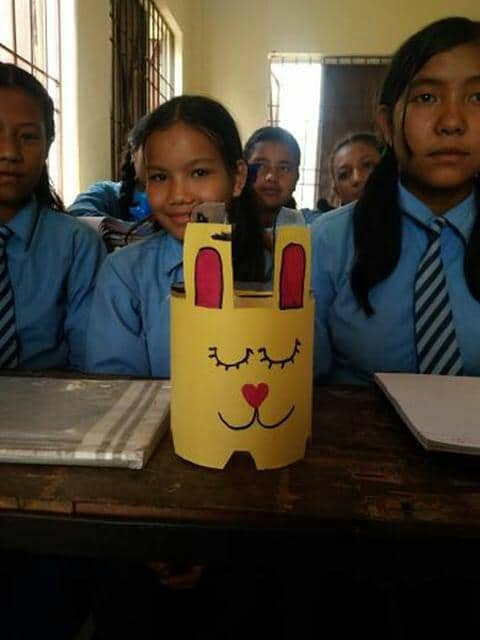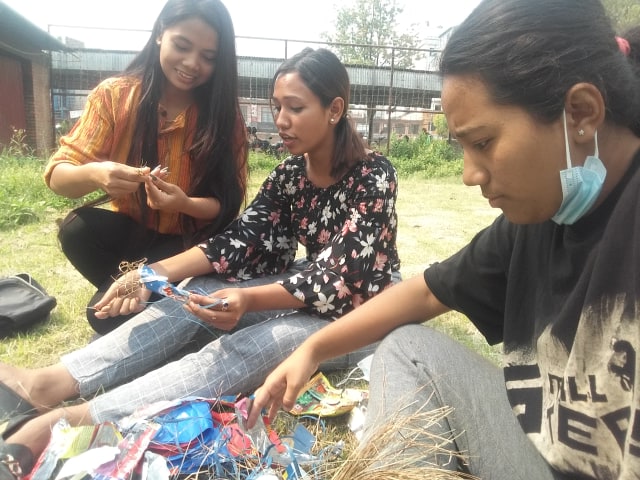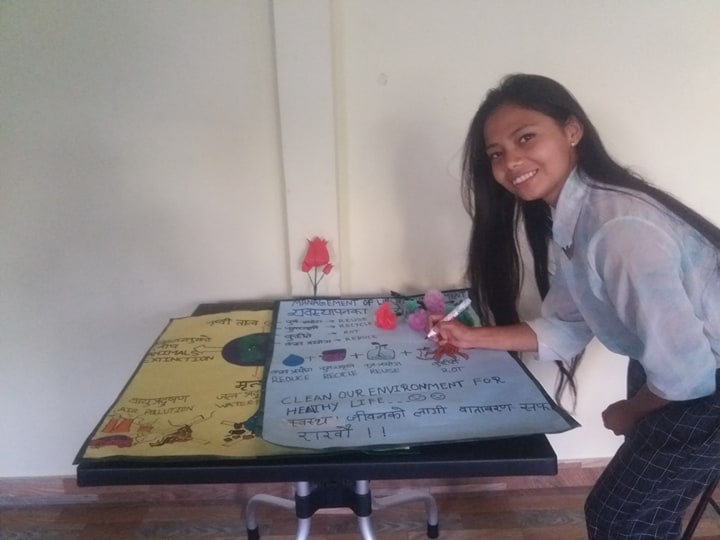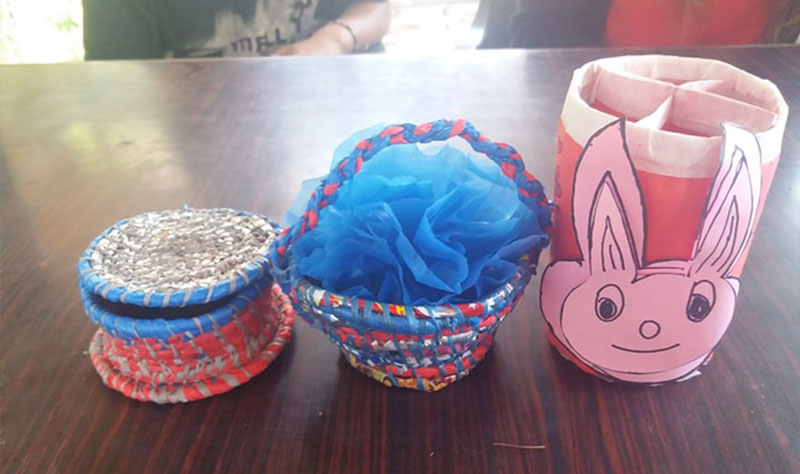Students from three schools of Tarkeswore municipality are trained on making household stuffs from the plastics. They are made aware of environmental pollution, global warming and climate change. They are trained to make tea stand, small baskets, flowers and decorative items useful in households from the chocolate, biscuits and noodles wrapper. The idea behind the project is to orient students not to throw plastics in the environment instead they can use it to make households items.
In Kavresthali there is no proper mechanism to manage the trashes specially plastics (plastic bags, chocolate and biscuits rappers, and plastic bottles). People are throwing plastics in the soil and water. It has destroyed soil and polluted water sources. We raise awareness for the sustainable management of the plastics.

We teach them innovative ideas to use those materials for the decoration of houses and gardening. This workshop is focused to train locals for 3R principles of waste management. (Reduce, reuse and repair)
Kathmandu alone uses around 4,700,000 to 4,800,000 plastic bags daily. In Nepal, 16 percent of urban waste is comprised of plastic, which is 2.7 tons of daily plastic garbage production. And this is just Kathmandu. When you look at the global level the data is staggering. Researchers claim humans have produced 9.1 billion tons of plastic so far, and much of it ends up in nature—causing harm to both living beings and the environment.
Besides the sheer quantity of plastic waste being produced, one of the major problems with plastic is its resistance to degradation. A conservative estimate puts the average time for one single plastic bag to completely biodegrade at 500 years. This means that not only most of the plastic we use during our lives will outlive us, but that our plastic footprint also will affect the generations to come.
The government has already recognized the need to keep the environment clean. In April 2015 Nepal declared Kathmandu a polythene bag-free zone. This said, Kathmandu is still a long way from being completely free from plastic bags
(https://kathmandupost.ekantipur.com/news/2018-06-05/a-plastic-world.html)
We aware people about the harmful effects of plastics and impacts on human life. We are providing training to school children and local communities for reducing, reusing and recycling of the plastics. Moreover, we hope the skills learn by them to make plastics items would support to manage plastics in the long term.




 Member of
Member of